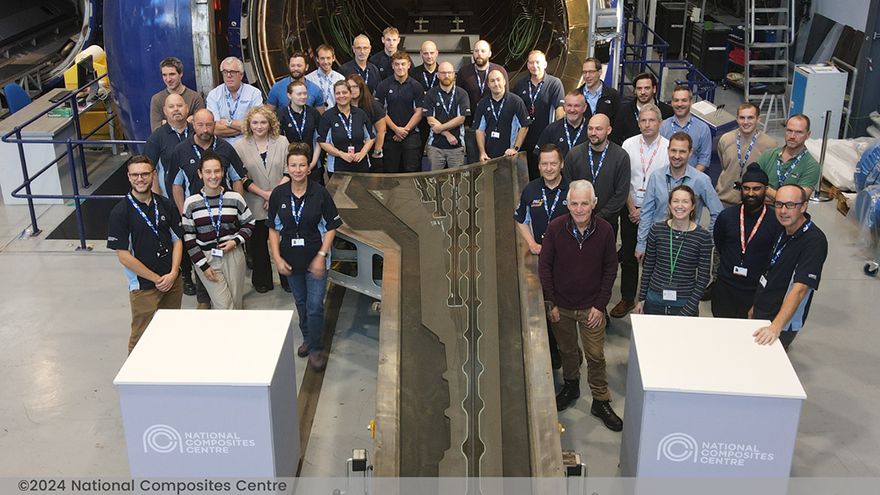
The
National Composites Centre (NCC), part of the
High Value Manufacturing Catapult, has released a case study detailing their successful delivery of the design and manufacture of vital one-off flying parts to facilitate UK capability towards accelerating new technologies to decarbonise the aviation industry. The wing demonstrators are in support of
Airbus’s innovative eXtra Performance Wing project to optimise wing aerodynamics and aircraft performance through hinged wingtips inspired by the biomimicry of seabirds.
Enhancing aerodynamics requires the eXtra performance wing to be longer, thinner, and lighter than the standard wing — causing it to be more flexible, and more susceptible to turbulence. The NCC’s support was sought to design and manufacture the key structural elements for a 6m section of the wing to relevant aerospace standards.
Part-funded by the
Aerospace Technology Institute (ATI), the structural design phase of the demonstrator wing part was led by
Airbus in a close partnership with specialists from
Expleo, the
University of Bristol, and the NCC. A team of more than 500 NCC engineering specialists led the composite manufacturing phase. The scope of the 18-month project included the design and fabrication of unique tooling suitable for the manufacture of 28 one-off flying parts.
Sarabpal Bhatia, eXtra Performance Wing demonstrator - wing delivery team leader at Airbus Operations Ltd, said: “The Airbus and NCC teams have collaborated on the design and industrialisation of primary structure composite components for the eXtra performance wing demonstrator wings. These manufactured high-aspect-ratio wing components have been integrated into the wing assembly in Filton, which are targeted to be installed on the flying demonstrator aircraft next year in France.”
Kevin Mee, head of aerospace at the NCC, said: “The valuable expertise developed on this project will continue to help the NCC lead advancements in industrial design and the adoption of cutting-edge manufacturing technologies particularly in the pursuit of delivering transformational innovation to advance ‘net zero’ flight. This also expands our manufacturing testbed’s end-to-end engineering services for aerospace customers keen to trial next-generation process innovations.”
Airbus’ eXtra performance wing will use a Cessna Citation VII to flight test new systems including hinged wingtips and an adaptable trailing edge which can be used to modify the wing shape mimicking a bird’s ability to adapt to flight conditions. This could reduce the maximum loads on the wing, enabling the use of higher aspect ratios and unlocking their potential fuel burn benefits.